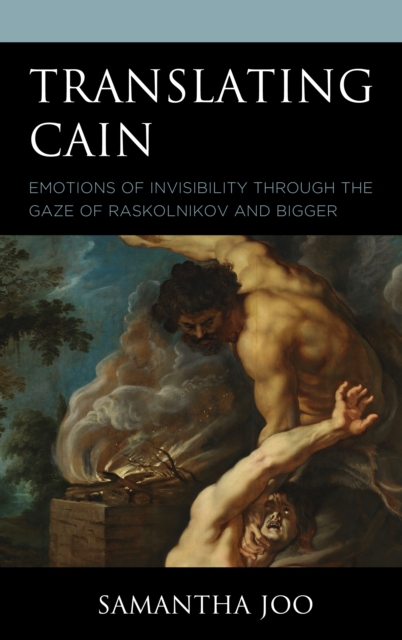Translating Cain: Emotions of Invisibility through the Gaze of Raskolnikov and Bigger

Translating Cain: Emotions of Invisibility through the Gaze of Raskolnikov and Bigger
Unless we recognize the cultural context embedded in the Genesis story of Cain and Abel, the significance of Cain's rejection and consequent violence is often lost in translation. While many interpreters highlight the theme of sibling rivalry to explain Cain's murderous violence, Samantha Joo relates Cain's anger and shame to the social marginalization of Kenites in ancient Israel, for whom Cain functions narratively as an ancestor. To better understand and experience Cain's emotions in the narrative, Joo provides a method for re-contextualizing an ancient story in modern contexts. Drawing from post-colonial theories of Latin America translators, Joo focuses on analogies which simulate the "moveable event" of a story. She shows that novels like Fyodor Dostoevsky's Crime and Punishment and Richard Wright's Native Son, in which protagonists kill to escape their invisibility, capture the "event" of Cain and Abel. Consequently, readers can empathize with the anger and shame resulting from the social marginalization of Cain through the alienation of a poor, ex-university student, Raskolnikov, and the oppression of a young black man, Bigger Thomas.
PRP: 765.00 Lei
Acesta este Pretul Recomandat de Producator. Pretul de vanzare al produsului este afisat mai jos.
650.25Lei
650.25Lei
765.00 LeiLivrare in 2-4 saptamani
Descrierea produsului
Unless we recognize the cultural context embedded in the Genesis story of Cain and Abel, the significance of Cain's rejection and consequent violence is often lost in translation. While many interpreters highlight the theme of sibling rivalry to explain Cain's murderous violence, Samantha Joo relates Cain's anger and shame to the social marginalization of Kenites in ancient Israel, for whom Cain functions narratively as an ancestor. To better understand and experience Cain's emotions in the narrative, Joo provides a method for re-contextualizing an ancient story in modern contexts. Drawing from post-colonial theories of Latin America translators, Joo focuses on analogies which simulate the "moveable event" of a story. She shows that novels like Fyodor Dostoevsky's Crime and Punishment and Richard Wright's Native Son, in which protagonists kill to escape their invisibility, capture the "event" of Cain and Abel. Consequently, readers can empathize with the anger and shame resulting from the social marginalization of Cain through the alienation of a poor, ex-university student, Raskolnikov, and the oppression of a young black man, Bigger Thomas.
Detaliile produsului











